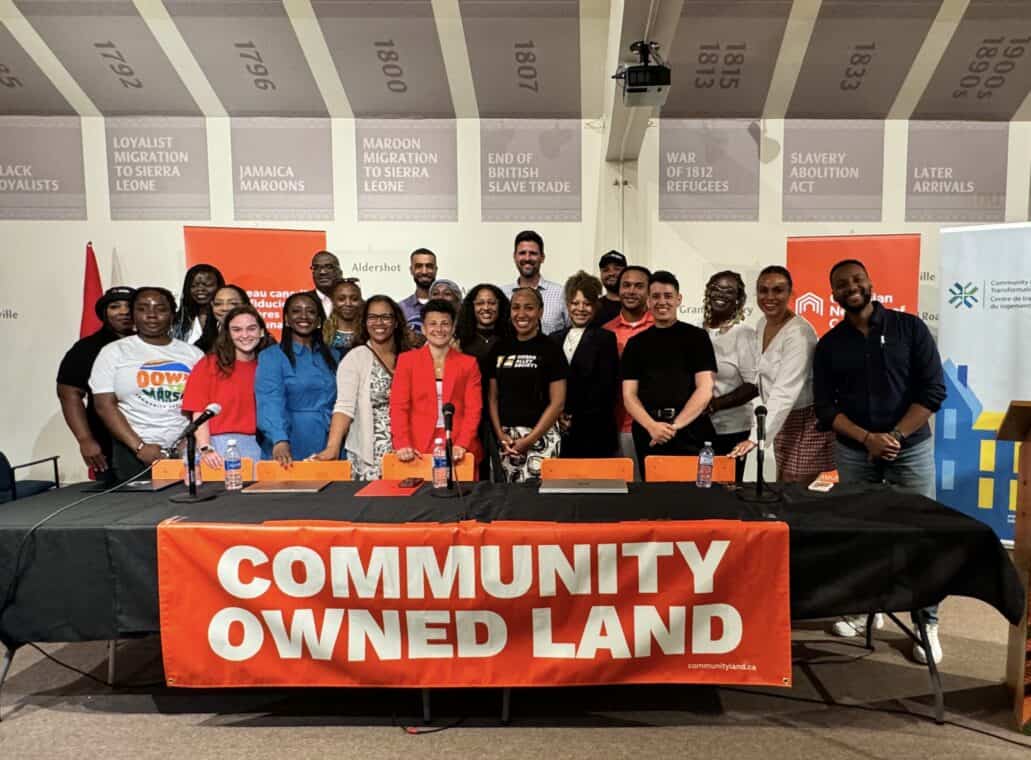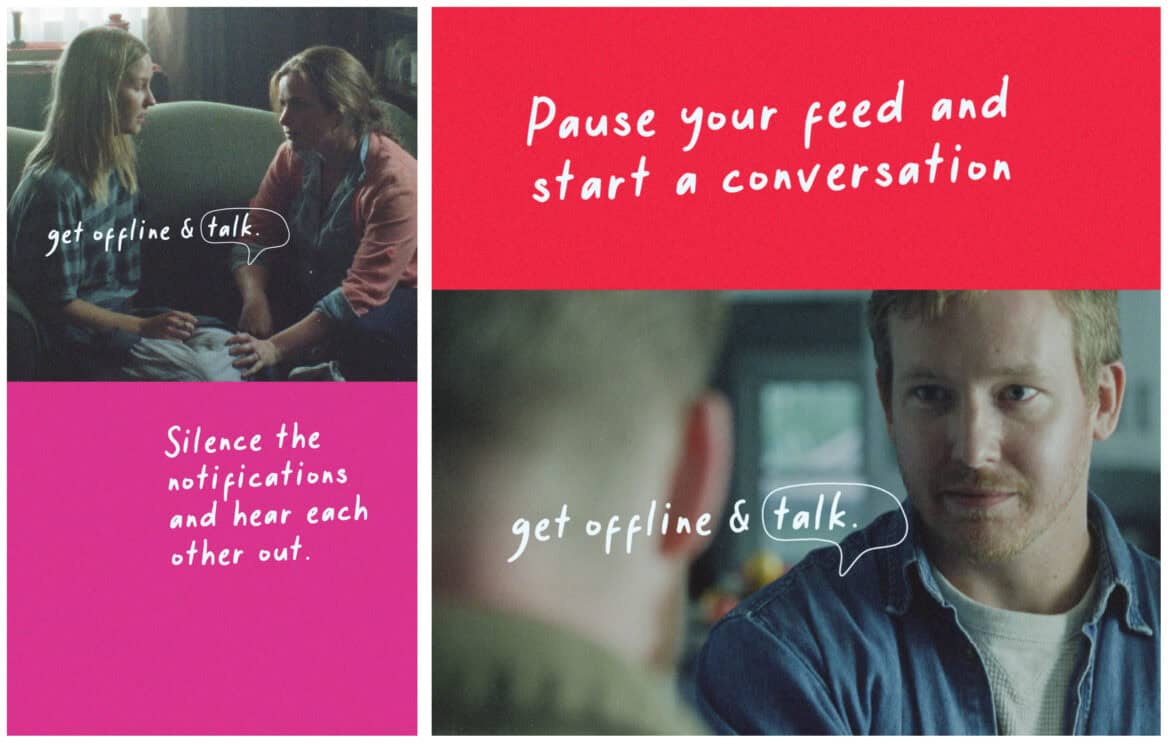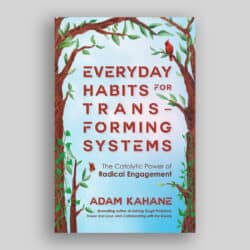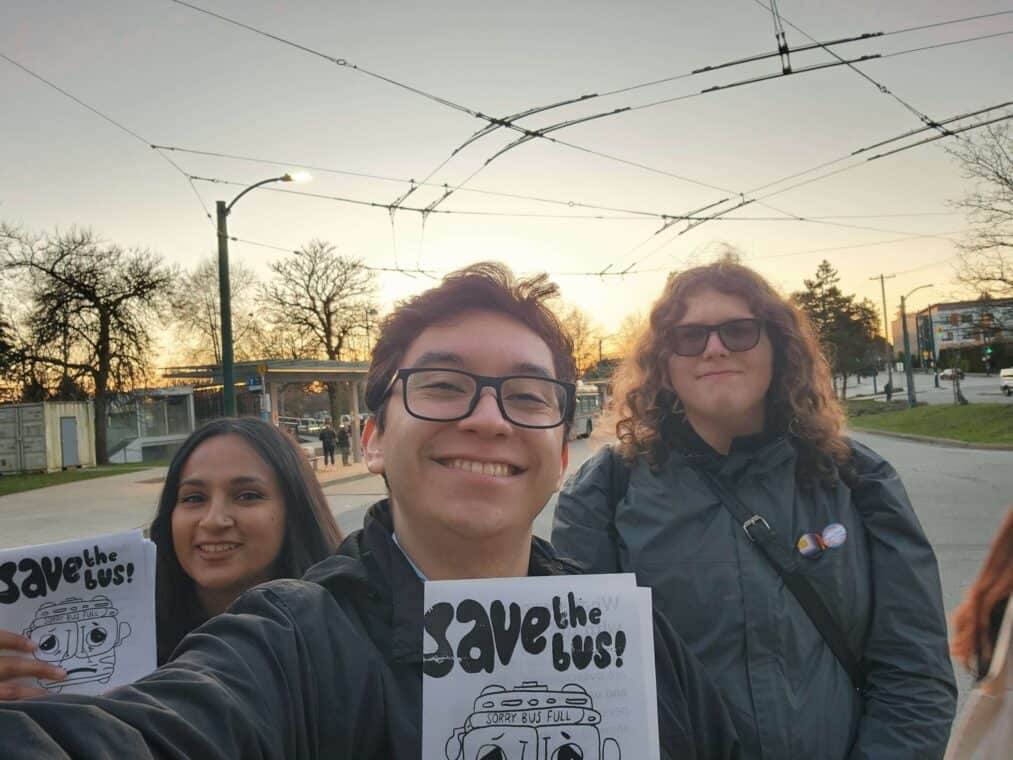Can the non-profit sector adopt voluntary standards to improve its data problem?
Strengthening data literacy, expanding data capacity, and improving data-driven strategies has been a rising priority in the sector. Is the solution in community-led best practices, or does the sector need more?
How Black-led community land trusts are connecting Black communities with lost land across Canada
With their collective ownership model, community land trusts have the opportunity to work with provincial and federal governments to provide affordable housing and community hubs to marginalized communities.
New ports, pipelines, and trading partners are not enough to secure Canadians’ prosperity
Canada’s response to US threats of tariffs and annexation includes economic, industrial, and infrastructure proposals. But more robust community services must also play a key role, Prosper Canada’s Elizabeth Mulholland writes.
‘Buy Canadian’ signals that an alternative economy is possible – but we need to nourish it
The seed for a more self-sufficient and resilient economy, one not focused on extraction and exploitation, lies in community wealth building – and non-profits are on the front lines leading the way.
Featured
Analysis
Filling the gap? The pressure on philanthropy in the fragile eldercare system
Should philanthropy serve as a complement to or a substitute for the state’s obligations to the elderly? Researchers share what they learned from the role of philanthropy in Quebec’s eldercare system during the COVID-19 pandemic.
In an election like no other, an anxious non-profit sector meets its own ‘elbows up’ moment
With a looming recession and increased attacks on civil society, Canadian sector leaders report that there is a resolve – a sense that if a fight is ahead, it is a fight worth having.
Philanthropy and Funding
Building communities where youth can step into the spaces where they belong
The Kickback Foundation’s vision is to create worlds and opportunities where kids have the space and support they need to explore their own journeys and define themselves – using sneakers as a magnet.
Narrowing the racial wealth gap: Planned giving as a tool for economic justice
Estate planning remains an overlooked tool for closing the racial wealth gap. By fostering accessibility and trust, planned-giving professionals can contribute to economic justice while strengthening the future of philanthropy.
Case Studies & Guides
Why we need space for grief
Despite its profound ripple effects on families, workplaces, and communities, grief remains an overlooked crisis. An immersive public art installation that creates a space for collective mourning is part of a broader movement to change the ways communities and societies address, plan, and design for grief.
Get Offline and Talk: Anatomy of a narrative change campaign
An Action Canada public awareness campaign combats polarization and misinformation through human connection and empathy, by motivating people to have real-life conversations with people in their lives. This article explains how they did it, from conception through strategy, creative direction, and deployment.
Decolonization and Reconciliation
Prioritizing restitution, Indigenous leadership, and the future with ‘restorative philanthropy’
A 2024 learning series introduced “restorative philanthropy” – a rethink of traditional models of philanthropy, especially in light of historical and ongoing injustices experienced by Indigenous Peoples. Tanya Rumble and Yumi Numata share some key learnings from the program.
When the expert is your cousin: Indigenous alternatives to ‘distrust by default’ conflict-of-interest rules
COI policies have contributed to a working culture that’s antithetical to Indigenous ways of working, Aiden Cyr writes. He talks to four Indigenous social impact leaders whose insights suggest that the path forward may instead lie in “mutuality of interest.”
Series on Work in Progress
Volunteerism: In crisis or at a crossroads?
With volunteering in Canada in decline, contributor Yvonne Rodney looks at the data and talks to sector leaders to ponder the way forward. The solution, she writes, includes acknowledging the impact of the pandemic, understanding generational differences, and convincing funders to do more to help organizations.
The decision to step down: Reflections from four foundation leaders
When long-serving leaders leave their roles, what can we learn from them that will help our sector traverse the challenging times ahead?
Building a sense of belonging and connection at work in the hybrid era
With remote and hybrid work the new norm post-pandemic, non-profits are tailoring strategies to ensure that employees feel heard, seen, and valued – and have discovered that there’s no one-size-fits-all approach.
Subscribe
Canadian non-profit sector news, in your inbox
Never miss news and analysis by and for the Canadian non-profit sector
Most Popular
Analysis
Gift planning: Not just for wealthy grandparents
Billions of dollars flow from Canadians to charities through their wills. Now, gift planners say charities need to be thinking a lot more about it as a fundraising strategy – across all demographics.
Good transit is essential to good cities – we need more people speaking up for it
Public transport is an essential service that promotes equity and health and reduces pollution. Non-profits can help mobilize riders and fund research and advocacy to support meaningful change.
How the ‘localness’ of local news strengthens communities
Local, independent news publishers across Canada are fighting to build trust, promote dialogue, and foster engaged, informed communities on shoestring budgets.
Is generational change coming to foundation philanthropy?
With a turbulent external environment, growing pressure on charities, and internal shifts in leadership and focus, the philanthropic sector is navigating significant change. It’s all adding up to what may be the biggest shift to foundation philanthropy we’ve seen in Canada, Hilary Pearson writes.
More articles From the Archives
A short history of voluntary sector–government relations in Canada (revisited)
The original version of this story, published in 2007, is one of The Philanthropist Journal’s most popular pieces of all time. In this updated version, Peter Elson and Peyton Carmichael expand on that detailed (and not so short) history.
Charities and the rule against perpetuities
Charitable status is a legally privileged status. The law in numerous ways, ranging from the trivial to the noteworthy, confers legal advantages upon charities. These legal advantages are often misunderstood.
‘We don’t have a word for philanthropy’
What do Indigenous Peoples mean when they talk about Indigenous philanthropy? Miles Morrisseau put this question and others to Indigenous people who are leaders in the philanthropic sector.
Strategies for a caring society
This article was developed from a paper presented at Investigating in the Whole Community: Strategies for a Caring Society, a conference organized by the Trillium
Featured Contributors
-
Angela Long
Angela Long is a freelance writer currently working on a book about rural journalism in Canada.

-
Yvonne Rodney
Yvonne Rodney is a Toronto author, career consultant, speaker, and non-profit worker with extensive experience in career development. She is the author of Moving On: A Quick Guide for Non-Profit Workers and Military to Civilian Employment: A Career Practitioner’s Guide.

-
Christina Palassio
Christina Palassio is a non-profit communications professional and freelance writer. When she tweets, she does so at @mcpalassio.

-
Tim Harper
Tim Harper is a Toronto-based writer. He is a former Washington correspondent and national affairs columnist with the Toronto Star.

- All Featured Contributors


























